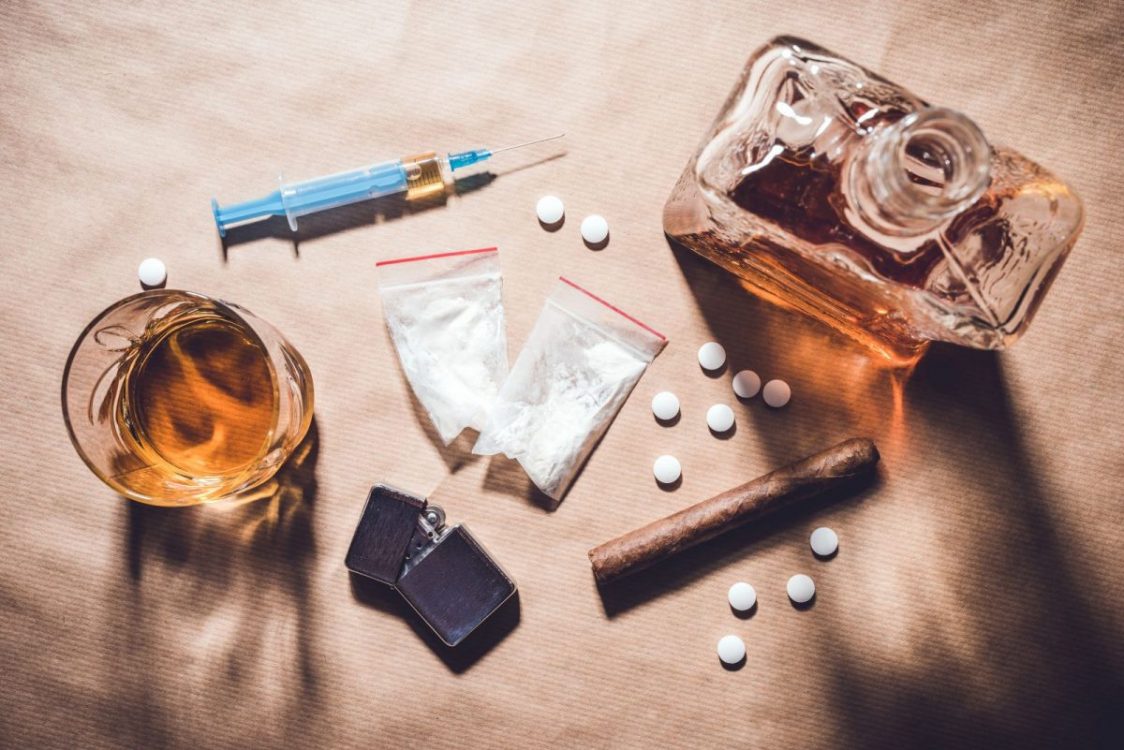Link between drug addiction and bipolar disorder

Many times, we encounter people diagnosed with bipolar disorders and the common misconception is that it is always linked to substance use and abuse.
In so far as addiction is concerned, people with bipolar disorder tend to stand a higher risk for substance use disorders. Research has revealed that alcohol use disorder (AUD) is most common in people with bipolar disorder and substance use disorders.
However, a person with bipolar may also use drugs, such as nicotine, cannabis, or cocaine, in a dependent or disordered fashion. Turning to alcohol or other illegal drugs might seem helpful in coping with painful symptoms in the short term, but it can have severe and disruptive consequences to daily life.
Both genetics and imbalanced chemicals in the brain can cause bipolar disorder. A distressing environment is also a risk factor. This disorder can lead to financial and legal troubles, addiction, relationship issues, and suicide.
Many people with bipolar disorder are tempted to abuse drugs to relieve the troubles caused by their condition. Symptoms sometimes often resemble those of drug use and addiction. Someone going through a manic episode can look and act like someone on cocaine. Both experience an elevated mood and energy. Those having a major depressive episode can also have the same symptoms as someone in withdrawal.
Bipolar disorder typically worsens with age, especially if left untreated. It can be treated and often does stabilise, but not without consistent engagement in a disciplined process of medication and psychotherapy. For those who refuse treatment or go undiagnosed, symptoms will likely intensify over time.
A mental disorder, like bipolar can only be diagnosed by a medical professional. It’s one of the most challenging mental health issues to diagnose, particularly when there’s also a substance abuse issue at play.
Due to the overarching stigma on mental health and addictive disorders, many who would benefit from medication go without because they feel that treatment would make them “less than” others, which could not be further from the truth.
Unfortunately, this mindset often leads those experiencing either disorder to self-medicate through alcohol and other abusive substances. The issue here is that bipolar leads to an imbalance of neurotransmitters.
The addition of foreign substances into the body, particularly those of abuse, only serves to disrupt homeostasis (neurochemical balance) further. Though the initial effect may feel desirable to the individual, it will eventually develop an accelerated pathway to addiction, from which many struggle to escape.
Data shows that people who suffer from bipolar disorder are more likely to turn to substance use than other people, in theory, as a means of self-medicating and trying to rebalance mood. In fact, most studies suggest that people with bipolar disorder have an extremely high rate of co-occurring substance use disorders.
There’s no single cause of bipolar disorder according to scientists, who believe a culmination of factors are responsible for triggering the mental illness. It’s exactly the same with drug and alcohol addiction. Genetically, there’s evidence to suggest that bipolar disorder is inherited in families. People with a sibling or parent who has the condition are more likely to receive a diagnosis than individuals without an affected family member.
From the environment, major life changes and stressful events are thought to be capable of triggering bipolar disorder. Grief and serious illness are examples of environmental risk factors. Drug abuse is also considered a risk factor for bringing on the disorder, and people with anxiety and seasonal depression are at an increased risk.
By comparison, it is easier to diagnose an addiction than it is to diagnose bipolar disorder. People who have a history of episodes prior to their drug use are more likely to recognise the underlying mental health issue. However, if the disorder developed as a result of an addiction, it can be harder to tell.
— The writer is manager Corporate Communications, Nacada












